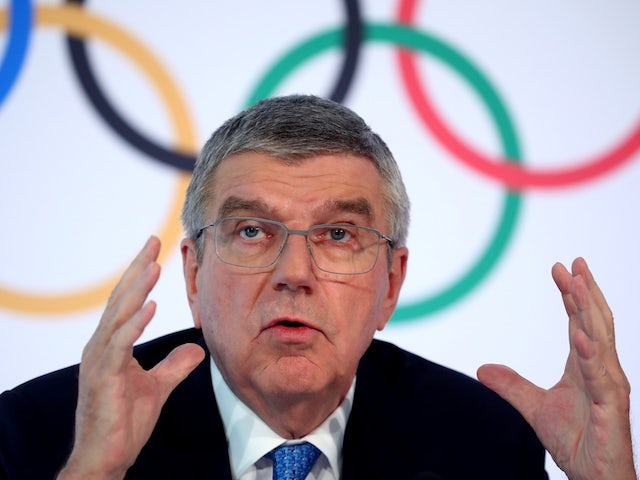The postponement of the 2020 Tokyo Games means the International Olympic Committee will have to shoulder "several hundred million dollars" of costs, its president Thomas Bach has admitted.
An open letter from the German to the Olympic movement outlined the impact of the coronavirus pandemic on sport and wider society, and confirmed the IOC would have to review its budget and priorities in a post-virus world.
The leaders of the Tokyo organising committee of the Olympic and Paralympic Games have warned the costs of delaying the Games until the summer of 2021 will be massive, with media reports in Japan putting the additional cost somewhere between two and six billion US dollars.
IOC President Thomas Bach today sent a letter to the Olympic Movement entitled "Olympism and Corona" to initiate a comprehensive debate on "the challenges we are facing and the potential of the opportunities we have." https://t.co/YARe9KSrhz — IOC MEDIA (@iocmedia) April 29, 2020
Bach said: "Although it is too early to give an exact figure, we already know that we have to shoulder several hundred million US dollars of postponement costs.
"This is why we also need to look into and review all the services that we provide for these postponed Games."
Bach acknowledged the impact of the postponement at national Olympic committee (NOC) level as well.
"It's just been the most complex & lengthy piece of work we've ever had to undertake. The postponement of the Olympic Games is something the likes of which we'll never see again."@TeamGB Chef de Mission, Mark England OBE 📰➡️https://t.co/bxyKDKdseb🎙️🍏https://t.co/TjXt1pRCBJ pic.twitter.com/oa6CFxWlVO — UK Sport (@uk_sport) April 29, 2020
"With regard to supporting the Olympic community that is affected by this crisis, we are already in fruitful discussions with the athletes, the NOCs and the international federations, as well as our commercial partners and sponsors," he wrote.
"As immediate measures, we have already extended all Olympic grants to the NOCs to cover their preparations for the Games."
Bach admitted the crisis had forced the IOC to review its budget and priorities. He said the review would be presented shortly to the IOC's executive board.
"At this moment, nobody knows what the realities of the post-coronavirus world will look like," he said.
The Olympic Games #Tokyo2020 will be held from 23 July until 8 August 2021. More information here: https://t.co/ST25uXKglE pic.twitter.com/sQo1TIcH5O — #Tokyo2020 (@Tokyo2020) March 30, 2020
"What is clear, however, is that probably none of us will be able to sustain every single initiative or event that we were planning before this crisis hit.
"We will all need to take a close look at the scope of some of our activities and make the necessary adjustments to the new realities."
Team GB's chef de mission Mark England, speaking on the UK Sport 'Medals and More' podcast, spoke about the difficulties created by the delay.
"It's just been the most complex and lengthy piece of work we've ever had to undertake," he said.
"The postponement of the Olympic Games is something the likes of which we'll never see again. Having had the Games postponed, it is probably the best we could ever hope for that it has been replicated almost to the day.
"We know the date of the opening ceremony, we know the date the athlete village opens, we know when we have to enter a team and it's all within 24 hours plus a year to what it was in 2020. So in that regard it's been a very simple operation.
"But we have had to unravel hundreds of contracts to see whether our infrastructure in country can be replicated in Tokyo 2021 and that's taken most of our time."







